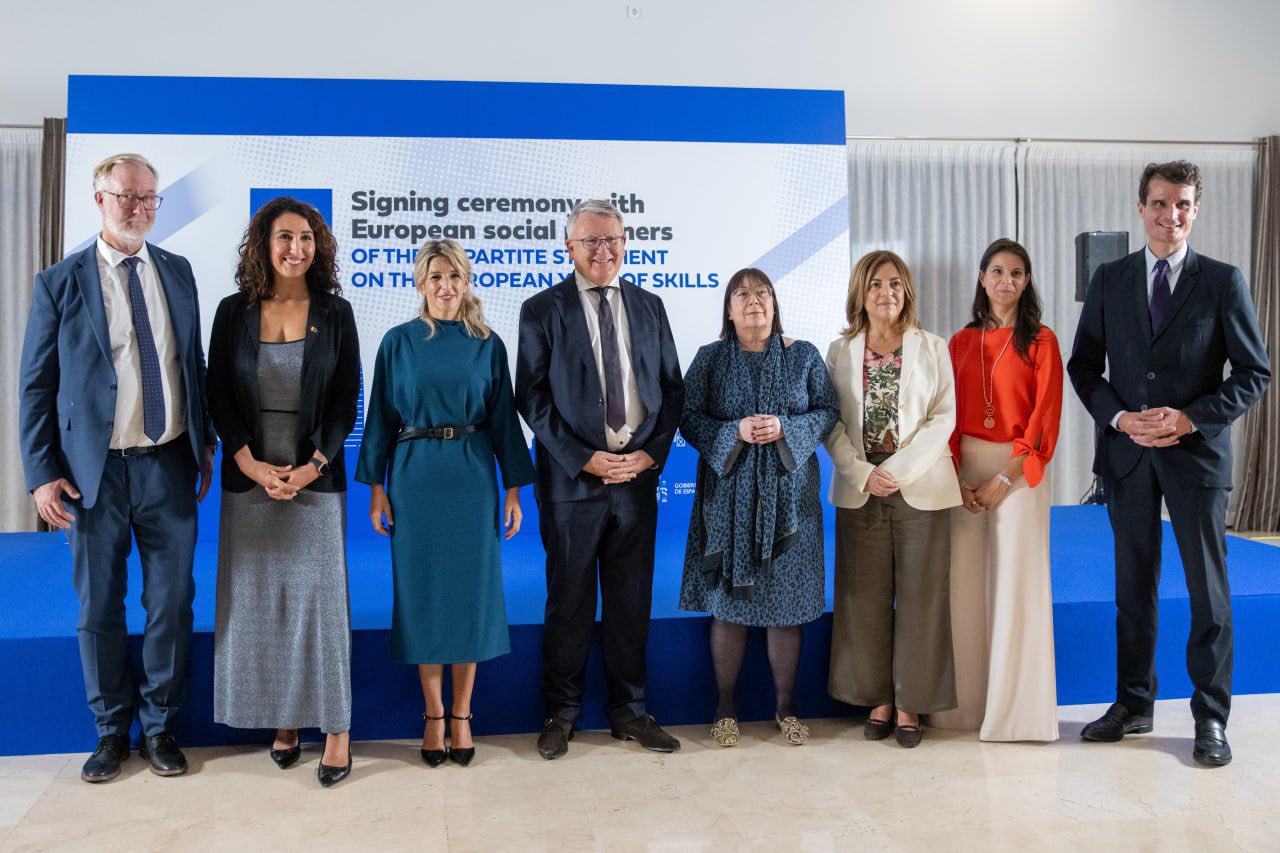Skills upgrading is the most salient labour market megatrend of this decade, and for a just twin transition we need a skills revolution that will go well beyond the European Year of Skills.
This was the main message Cedefop Executive Director Jürgen Siebel conveyed to European Union and national policymakers and social partners during a high-level conference in Barcelona on 19 and 20 October.
The event, ‘Active labour market policies – pillar of the European Year of Skills', was organised by the Spanish Presidency of the European Council and culminated in the signing of tripartite statement acknowledging that training is a shared interest and a common endeavour involving governments, employers and trade unions and committing to implementing effective skills policies.
Addressing the conference, Nicolas Schmit, European Commissioner for Employment, Social Affairs and Inclusion, noted that skills intelligence, such as produced by Cedefop, was an important tool that we rely on to tackle labour shortages and added:
‘Member States have allocated around €65 billion of EU funds to invest in skills programmes. This is an unprecedented amount, and each euro has to be put to good use’.

During a panel discussion, drawing on Cedefop’s extensive research on skills and the labour market, Mr Siebel underlined among others:
- The broad outlook for the period until 2035 is that we will have additional employment and much more skills intensive jobs.
- The digital and green transitions are about innovation – inventing and implementing digital technology and greentech – but it is just as much about putting skills and upskilling and reskilling front, left, right and centre stage.
- To make sure the transitions are just and inclusive we ought to ensure training for the large number of trainable people. But it is not solely about supplying more skills; we must tackle skill mismatch and tap into opportunities to expand skills utilisation at work.
- We also need to upgrade jobs by designing jobs in smarter ways, by improving work organisation and by giving more people opportunities to use and expand their skills. Investing in skills and jobs go together.
- Recent digital skills dynamics are strongest in low skilled jobs, and that sends a clear message to policymakers and policy implementers.
- The green transition is often powered by the digital one, hence investing in digital skills and jobs also powers the green transition.
Mr Siebel also presented Cedefop’s view of, and priorities for, the European Year of Skills and analysed the steps towards Europe's skill revolution that will allow for a fair and inclusive green and digital transition.


